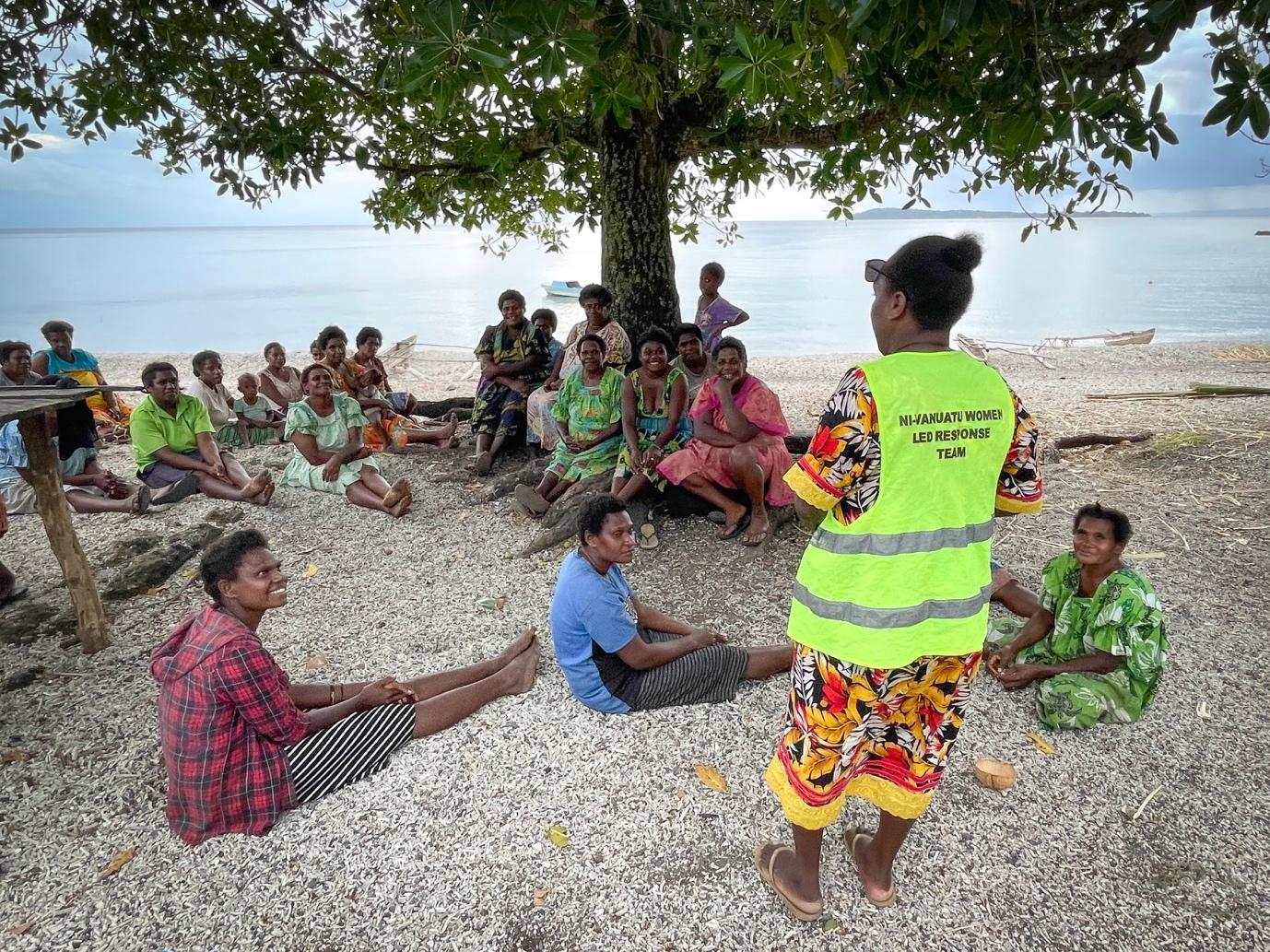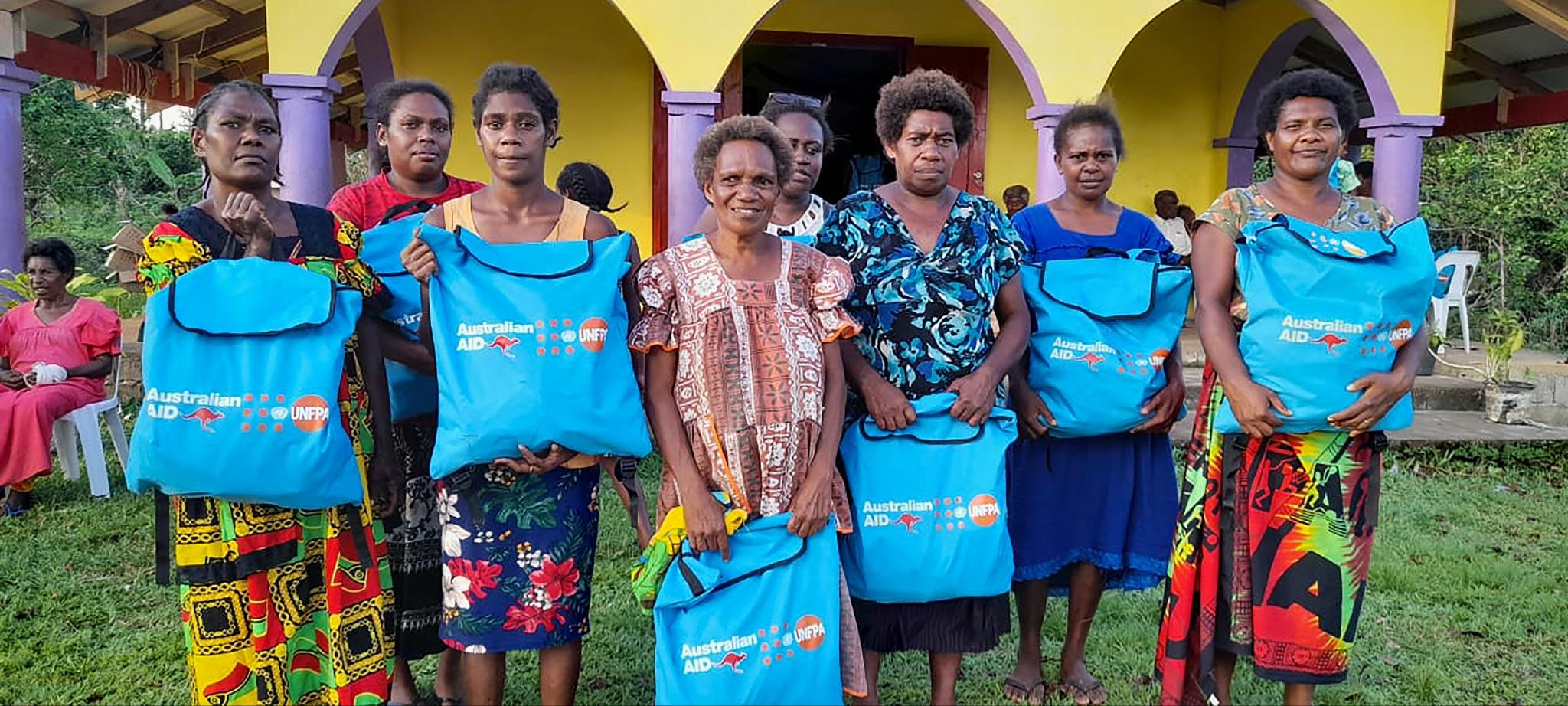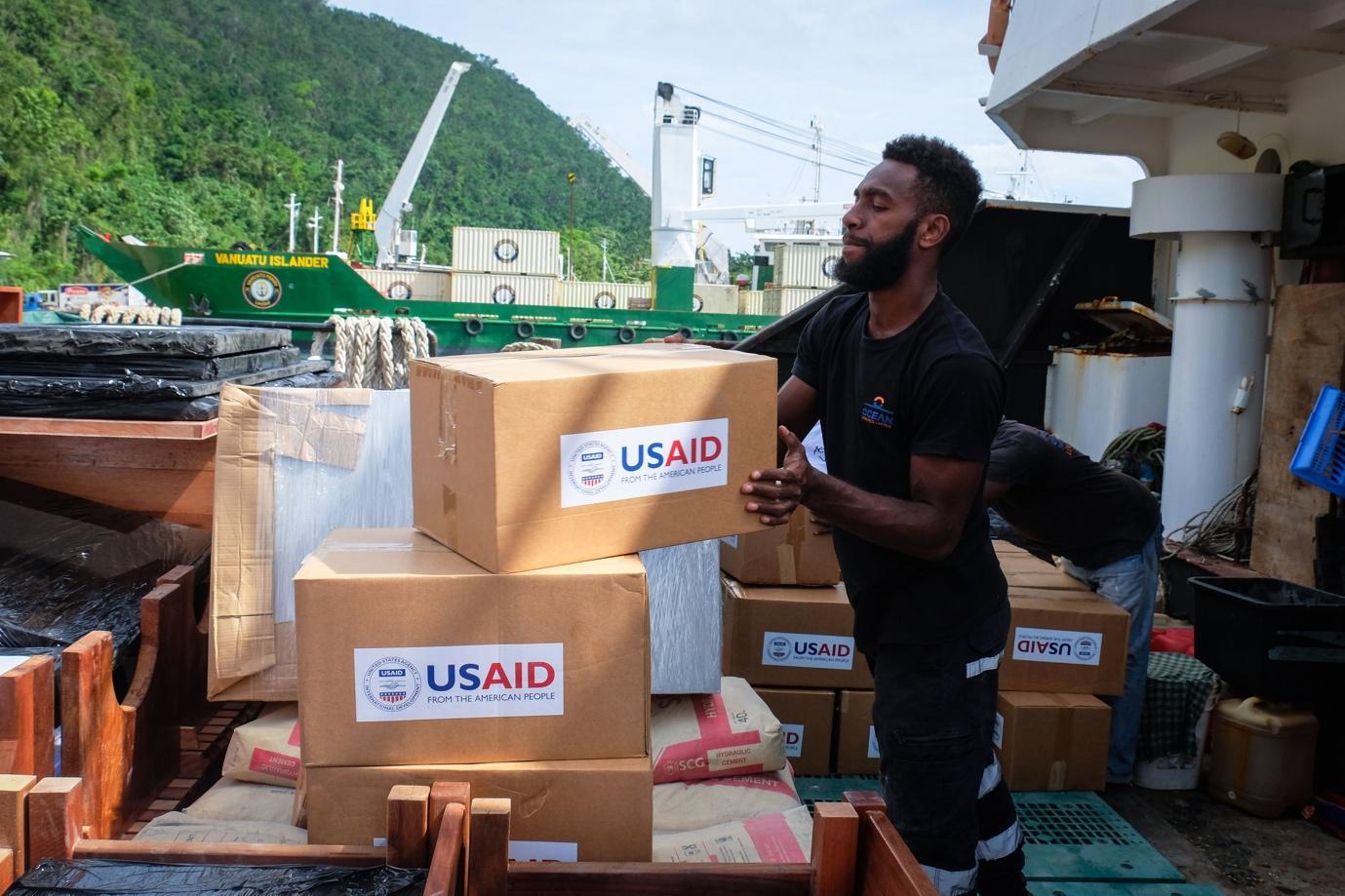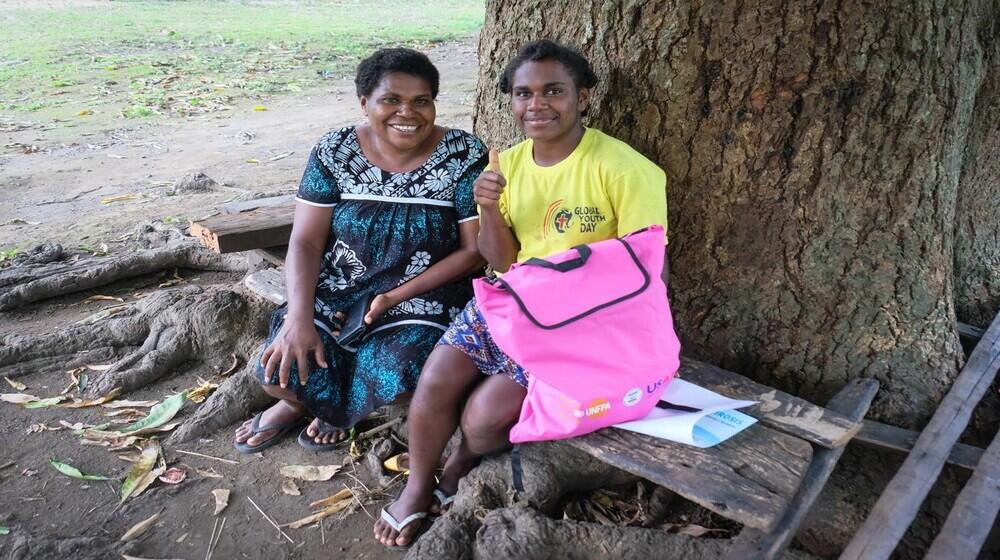EPI ISLAND, Vanuatu – It was the first time that Morasi, a 22-year-old deaf woman from Vanuatu’s Epi Island, received a “Dignity Kit” bag. Beside her house which was damaged by the two consecutive Tropical Cyclones Judy and Kevin that ravaged the country within 48 hours in early March, Morasi was holding the sanitary napkins, underwear and other essential ‘dignity kits’ out from the bag. “This reminds me of the time I had my first period when I was young and what my mother taught me about menstrual health,” said Morasi in the sign language to Janet Orah, Area Council Administrator in Epi Island, some 100 kilometres away from another island of Efate where the capital Port Vila is located.
In times of crisis, the unique needs of women, young people, and persons with disabilities tend to get neglected, especially their sexual and reproductive health (SRH). “The pace of pregnancy does not stop just because a disaster strikes. Periods do not wait till the crisis ends, either,” Iori Kato, UNFPA Director for the Pacific Sub-Regional Office emphasises.
In conjunction with the joint post-disaster needs assessment conducted by the Government in the aftermath of the devastating two cyclones, it revealed that some of the women and girls who had lost their clothing, underwear, menstrual hygiene products, and other personal items to the cyclones, felt too ‘ashamed’ to come out to the public - that was because of the lost sense of "dignity" and it prevented them from accessing humanitarian relief and other critical services and from participating in community dialogues. Stigma and cultural taboos around menstruation and existing gender stereotypes made their already difficult situations even worse.
It was against this backdrop that UNFPA Pacific provided 3,200 “Dignity Kits” to the cyclone-affected women and girls across Vanuatu. One backpack contains menstrual and hygiene management supplies like disposable and reusable menstrual pads, underwear, soap, towel, comb, toothbrush and paste, sandals, T-shirt, sarong, etc. In addition, because unfortunately gender-based violence (GBV) tends to increase during and after an emergency, UNFPA’s Dignity Kit also contains a whistle that can be used to ask for help when they feel threatened, and a flashlight to illuminate dark spaces that can potentially be unsafe.
"The Dignity Kit has items that are very much needed for women in these circumstances. Thank you!" said Noilin Willie, a 45-year-old mother of three, who needs to single-handedly manage her family while her husband is serving in the emergency cyclone committee and often spending weeks away from home to assess the damages in different communities.
UNFPA Pacific worked hand in hand with the Vanuatu Ministry of Health, Department of Women’s Affairs and the Climate Change Committees at the national, provincial and community levels to determine the areas which are among the most heavily impacted by the cyclones to prioritize Dignity Kit distribution to women and girls.

Lizzie Molli, ActionAid Livelihood Coordinator as a member of the women-led response team in Vanuatu, leading a session in Yopuna Village, Epi Island, to raise awareness about the importance of women’s health and protection during emergencies. UNFPA/David Palazón
An NGO implementing partner, Action Aid, supported by Area Council Administrators such as Janet, carried out a mission to Epi Island with a population of 5,200, and delivered 450 Dignity Kits to women and girls in 10 villages across all the four Area Councils despite challenging terrain conditions and weather, reaching approximately one in every five women in the island in five days. UNFPA had arranged the delivery of these items, first, from the warehouse in Australia to Vanuatu’s capital Port Vila, and then onward shipment from Efate further to Epi Island.
The gatherings to distribute Dignity Kits, not only served the purpose of providing essential hygiene supplies, but also provided a platform to sensitise the communities about the broader health, well-being and protection needs for women, adolescents, persons with disabilities and others whose vulnerabilities worsen during crises. In one such session, Lizzie Molli, the ActionAid Livelihood Coordinator, covered a variety of topics ranging from menstruation and broader sexual and reproductive health, to gender-based violation, and distributed brochures and phone cards with free-toll numbers in case further information and support is needed.

In March 2023, women gathered at the Teouma Women Association in Efate Island, receiving the first batch of "Dignity Kits” from UNFPA under the Asia-Pacific Regional Prepositioning Initiative funded by Australia’s Department of Foreign Affairs and Trade (DFAT). Photo courtesy of ActionAid/Anne Pakoa
Joycesabella, a class representative of Epi High School in Lamen Bay that shelters the cyclone-affected students from across Epi Island, is among those teenage girls who realised how important it is to receive formal awareness sessions about their menstrual hygiene and other physical and mental health aspects to disaster preparedness and response. “We discuss these matters only among our close friends. We appreciated the valuable sessions about women’s and girls’ health, and about the importance of equality and protection. We are grateful for the Dignity Kits that they gave us too!"
UNFPA’s distribution of Dignity Kits was made possible through support from USAID’s Bureau for Humanitarian Assistance (BHA) and the Australian government’s Department of Foreign Affairs and Trade (DFAT). UNFPA Director for the Pacific Kato emphasised, “Through close collaborations with the national and local government and non-governmental partners, UNFPA strives to contribute to ensuring that women, young people and persons with disabilities have access to essential SRH and GBV information, products and services, and they can discharge bodily autonomy by making informed decisions about their own body, life, and future, even in the midst and aftermath of humanitarian emergencies. I would like to thank USAID

Vanuatu’s Port Vila harbour staff loading boxes filled with UNFPA’s Dignity Kit contents funded by USAID
For media enquiries, please contact:
Ana Maria Leal, UNFPA Pacific Humanitarian Coordinator, leal@unfpa.org
Navinesh Kumar, UNFPA Pacific Communications Officer, nkumar@unfpa.org


